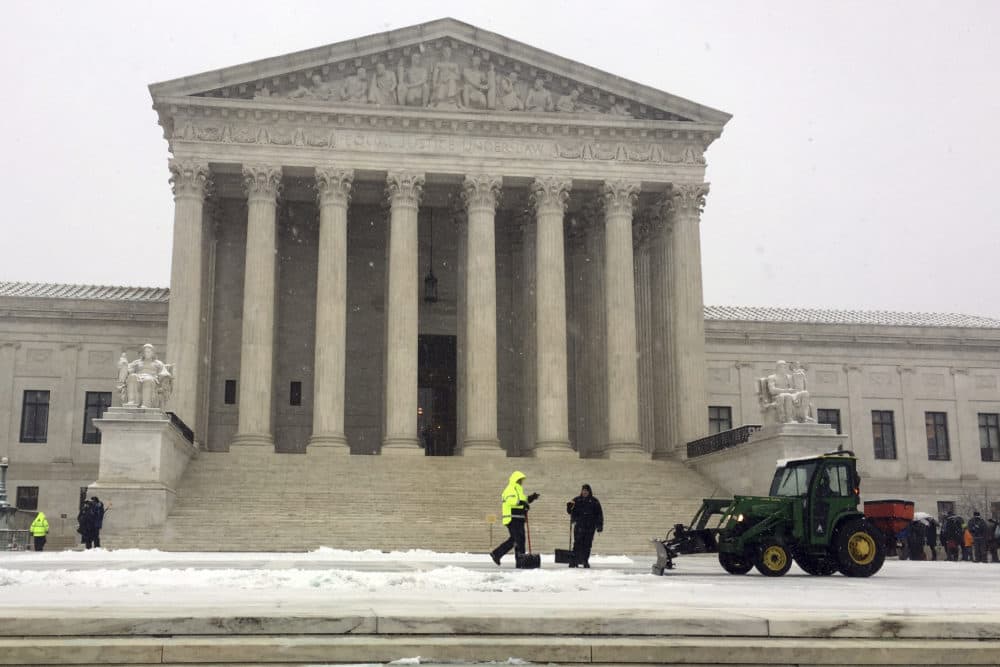Advertisement
Officials, Advocates Weigh In On Impact In Mass. Of Court Ruling On Civil Forfeiture

Advocates and officials in Massachusetts and other states are trying to figure out how a Supreme Court ruling this week limiting civil asset forfeiture affects local practices.
The court ruled unanimously Wednesday that the Constitution's ban on excessive fines applies to state and local governments.
In Massachusetts, police need only probable cause in order to seize property.
That threshold to confiscate property caused the Institute for Justice, a Libertarian-leaning public interest law firm, in 2015 to give Massachusetts an F grade for its civil forfeiture laws.
"It's a bit incongruous," Jennifer McDonald, a research analyst with the group, said in an interview Thursday. "We, in this country, believe that a person is presumed innocent until proven guilty. And civil forfeiture turns that standard on its head and makes the innocent prove their own innocence to get their property back."
McDonald said the Supreme Court's ruling won't necessarily make Massachusetts raise the threshold for property seizures, but with the high court making it clear that governments can't charge excessive fines to raise revenue, it's a step in the right direction.
"People across the country are going to have this excessive fines defense when it comes to trying to get their property," she said. "It will give us a little bit more of a defense when it comes to getting our property back. ... We would, of course, like to see the Supreme Court strike down civil forfeiture once and for all."
The Massachusetts Chiefs of Police Association said in a statement they're "reviewing the case and formulating" a response to the Supreme Court ruling.
Chelsea Police Chief Brian Keyes said he too hasn't looked at the Supreme Court's decision, but will review it soon.
But back in 2017 on Radio Boston, Keyes defended the practice, saying that even though probable cause is the threshold, law enforcement still do police work.
"The reality is, police in general do not seize people's property, whether it be money, whether it be a vehicle or other property, without there being an arrest," he said. "So ordinarily the way it works is the police generate probable cause to believe that a crime was committed."
Keyes also said the money generated from the fines and property seizures help make places safer.
"Fifty percent of the money, by statute, goes to the local law enforcement agency to seize it. The other 50 percent goes to the DA's office," he said. "And the money can only be used for very specific purposes in order to basically to combat crime and specifically drug crime."
But Suffolk County's newest district attorney, Rachael Rollins, said she's optimistic about the Supreme Court's ruling.
"Fines and fees are a way that we criminalized poverty," she said. "If somebody is qualified for a public defender and is considered indigent, but then we are riddling them with fines and fees that they can't pay — it's a burden that we're putting on them."
Rollins said she hasn't read the high court's ruling in its entirety, but she's "excited" about what this means for reform of the justice system. Rollins said the decision acknowledges that justice in America isn't the same for everyone.
Political groups in neighboring Rhode Island are also saying the Supreme Court's ruling could lead to new efforts to limit how that state can seize property.
